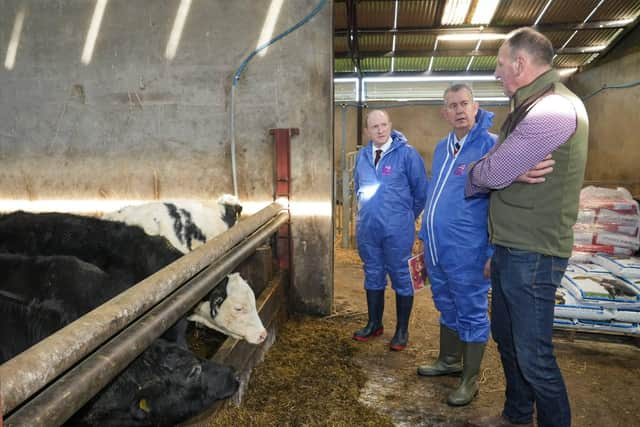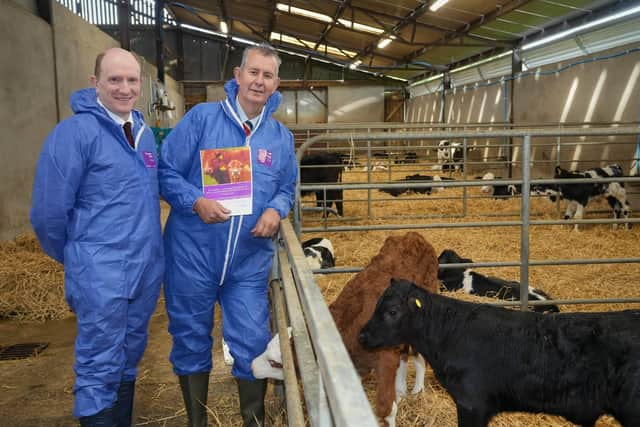Poots launches consultation on BVD herd restrictions
and live on Freeview channel 276
Announcing the consultation, Minister Poots said: “BVD is a serious endemic disease of cattle, which significantly compromises animal health. Since the introduction of the compulsory eradication scheme in 2016, significant progress has been made in driving down the incidence of disease. However, the virus continues to pose a significant risk to the health of cattle in Northern Ireland (NI).
“It also places a substantial financial burden on NI industry – estimated to be between £25million and £30million per year – and has wider societal impacts, arising from its contribution to increased greenhouse gas emissions and antimicrobial usage.”
Advertisement
Advertisement
The main source of virus is from persistently infected animals (PI). These are animals that have become infected with the virus while in the womb and which are likely to suffer from poor health. PI animals generally do not thrive, most fail to reach slaughter weight and, ultimately, they have a major impact on the health and productivity of the herd as they shed virus throughout their lives. It is, therefore, in a farmer’s financial interests to remove these PI animals promptly.


Minister Poots added: “I am pleased that most farmers appreciate the risk that PI animals present to herds and are already removing these animals as soon as they can following a positive test result. I find it disconcerting, however, that there are farmers that are not testing all animals in their herd and continue to retain PI animals despite the risks they pose to their herd and to other herds, maintaining the cycle of infection.
“Therefore, to further support the ongoing efforts of industry and protect unaffected herds, I propose to introduce restrictions on herds that retain PI animals or animals with inconclusive test results. My Department is also seeking views on whether it should have the power to restrict herds that fail to test animals for BVD within a specified period. Herd restrictions have proved to be a highly effective tool in the fight against BVD in other jurisdictions like Scotland and the Republic of Ireland (ROI), and I am confident the introduction of this disease control measure here would be a major step towards eradication of BVD in NI.”
Minister Poots concluded: “This consultation seeks views from stakeholders on proposals to introduce herd restrictions in NI to help eradicate BVD. It also seeks views on the introduction of an additional legal requirement to test any bovines without a BVD status that were born in or entered a herd prior to the introduction of the 2016 statutory scheme. I would strongly encourage all of those with an interest in the proposals to respond to the consultation.”
Advertisement
Advertisement
The proposals within the consultation document have been informed by engagement with Animal Health & Welfare, Northern Ireland (AHWNI), the delivery partner for the NI BVD eradication scheme and convenor of the BVD Implementation Group.


Welcoming the launch of the consultation, Dr Sam Strain, Chief Executive of AHWNI, said: “This is particularly important given the trading implications that the recent EU approval of the ROI BVD eradication programme has brought for Northern Ireland farmers, and the additional implications that may arise as the ROI works towards achieving BVD Free Status. The introduction of herd restrictions, where BVD positive animals are being retained is an important step on the journey to eradicating this disease and one that has been shown to be effective elsewhere. I would encourage those from the bovine livestock sector to read and respond to this consultation.”
Following the introduction of herd restrictions, the Department intends to work closely with industry to progress other eradication measures that are considered to be required to eradicate BVD.
The consultation closes on 20 December 2022 and is available to download from the DAERA website at: www.daera-ni.gov.uk/consultations/BVD-herd-restrictions